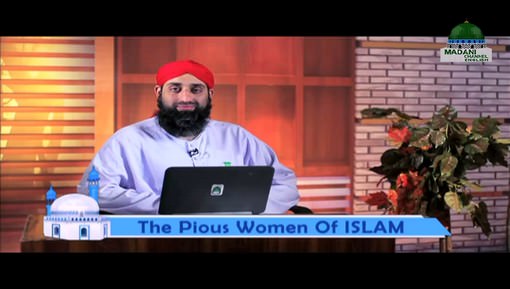
Fragrant pieces of advice
An example of this world and Hereafter
This world and the Hereafter are like two co-wives. If one is pleased, the other will remain displeased. (Blessed saying of Sayyiduna Wahb Bin Munabbih رَحْمَةُ اللّٰهِ عَلَيْه) (Hilyat-ul-Awliya, vol. 4, pp. 53, Raqm 4720)
Pleasing Allah عَزَّوَجَلَّ
There is good news for the one who has pleased his Rab عَزَّوَجَلَّ before appearing in His court. (Blessed saying of Sayyiduna Yahya Bin Mu’aaz Razi رَحْمَةُ الـلّٰـهِ عَـلَيْه) (Munabbihat, pp. 15)
A’la Hadrat’s pearls of wisdom
Naqsh-e-Na’layn Sharifayn
For hundreds of years, فَطَبَقَۃً طَبَقَۃً i.e. Islamic scholars and ‘Aimmah Deen’, in every era, have been making the prints of the blessed footwear of the Holy Prophet صَلَّى اللّٰهُ عَلَيْهِ وَاٰلِهٖ وَسَلَّم and writing booklets describing its many virtues and great benefits. (Fatawa Razawiyyah, vol. 24, pp. 512)
The ominousness of an impermissible picture
Angels do not enter the house that bears forbidden images (i.e. pictures of the face of living beings). Apart from this, the house in which angels of mercy do not enter is the worst of all places. (Fatawa Razawiyyah, vol. 24, pp. 590)
Excellence of performing righteous deeds in blessed moments
The righteous deeds that are performed in Awqat-e-Faadilah (blessed moments i.e., Shab-e-Bara’at etc.) have more spirituality. (Fatawa Razawiyyah, vol. 29, pp. 203)
Madani pearls of ‘Attar
A tip for attaining closeness to Holy Prophet ﷺ
If you want to attain closeness to the Holy Prophet صَلَّى اللّٰهُ عَلَيْهِ وَاٰلِهٖ وَسَلَّم, obey the Holy Prophet صَلَّى اللّٰهُ عَلَيْهِ وَاٰلِهٖ وَسَلَّم, act upon Sunnahs abundantly and recite Salat upon the Prophet صَلَّى اللّٰهُ عَلَيْهِ وَاٰلِهٖ وَسَلَّم extensively. اِنْ شَــآءَالـلّٰـه! By the blessings of these blessed activities, you will attain the closeness to the Holy Prophet صَلَّى اللّٰهُ عَلَيْهِ وَاٰلِهٖ وَسَلَّم. (Madani Muzakarah, 2 Muharram-ul-Haraam 1441 AH)
‘Conveying reward’ is a source of blessings
‘Conveying reward’ to pious people keeping ourselves away from sinful acts and staying within the bounds of Shari’ah is a source of blessings, a great act and the act of earning great reward. (Madani Muzakarah, 2 Muharram-ul-Haraam 1441 AH)
A virtue of Islam
Islam discourages mischief and disruption, and encourages love, peace and brotherhood. (Madani Muzakarah, 5 Muharram-ul-Haraam 1441 AH)



















Comments